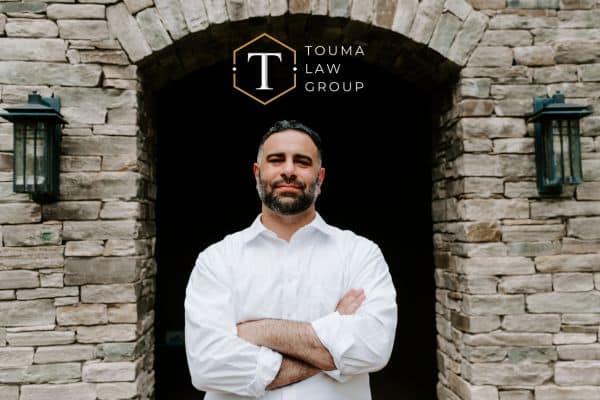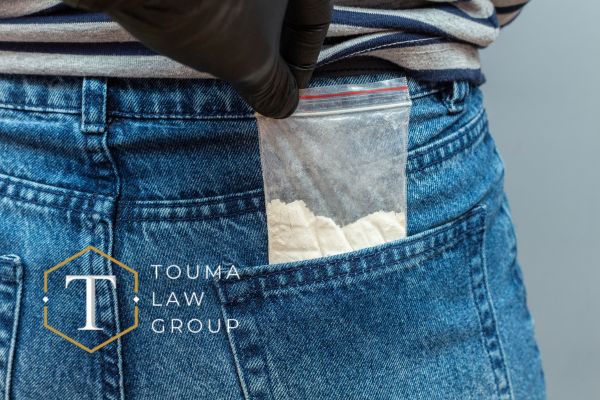There are three ways in which a police officer is able to search your property: with a warrant, with your permission, or with probable cause. This applies to your home, your car, your business, etc. There is no warrant requirement if an officer feels they have probable cause, or you give your permission. A warrantless search isn’t always an unlawful search.
While things like exigent circumstances, plain sight, or a lawful arrest may be used as probable cause, these reasons are not always valid and you may be the victim of unreasonable search and seizure. When this happens, it’s time to fight back, because these transgressions on the part of the law are a violation of your rights as a citizen of South Carolina and a citizen of the United States.

At Touma Law Group our Greenville drug defense attorneys know that defending the rights of our clients is one of the most important things we do, and are ready to help you stand up against the system that is trying to oppress you.
What is the Difference Between a Reasonable and Unreasonable Search?
Reasonable searches require that the police officer have probable probable cause to search your vehicle or a valid search warrant. For example, if you have drug paraphernalia sitting on the car seat that can plainly be seen through the window of your car.
This is enough probable cause for an officer to legally search your vehicle. If you admit to officers that you are in possession of drugs or drug paraphernalia, or other illegal items, you are also giving the officer probable cause to search your vehicle. If an officer is using a search warrant to search your private property, the execution of search warrants must be done legally, and there is a search warrant requirement that the search warrant is in good faith.

Unreasonable searches do happen, however. Police officers cannot say they have probable cause and then search your vehicle, they have to be able to articulate a legitimate probable cause before searching your vehicle. Imagine a person is pulled over by the police, they are speaking clearly, do not seem to be inebriated or intoxicated in any way, they were driving properly.
When the police officer runs their license, they see this person has a criminal history involving drug crimes. The officer then decides to search this person’s vehicle to see if they have any drugs or paraphernalia on them. This would fall under the category of unreasonable searches. Past crimes can not be used as probable cause to search your person or vehicle. If the officer were to find drugs or drug paraphernalia in your vehicle, they would not be able to use that evidence against you in court, because the warrantless search they performed to find this evidence was an unlawful search.
In regards to searching vehicles in South Carolina, there can also be a search incident if police officers do not respect your right to a "brief and cursory" detainment. This means that officers cannot hold you indefinitely while they figure out a way to be allowed to search your vehicle.
If you are being pulled over for a broken taillight, for example, police officers cannot see or smell anything to give them probable cause to search your vehicle, and you are acting normally, it is a violation of your rights to force you to wait while they bring out a K-9 unit. Even if the K-9 unit alerts on your vehicle, this is still considered an unreasonable search in South Carolina.
Learn More: What is General Sessions Court in SC?
What Can a Law Enforcement Officer Take During a Search?
Law enforcement officers are able to take a large list of things when they search your vehicle. They are able to take essentially any of your personal belongings that they believe can be used as evidence against you while searching your belongings. This can be anything from open or empty alcohol containers to drugs or drug paraphernalia, etc. If something is in your car and they believe it is evidence of a crime you have committed, they are able to seize it.
What many people don’t realize is that they are also allowed to take "large sums of money" in South Carolina. The amount of money does not actually matter, it can be anywhere from $100 or so up into the thousands and is normally seized during drug-related searches to use evidence of your intention to purchase drugs or proof that you have been involved in the selling of illegal drugs.
What Are Ways to Avoid Having Your Vehicle Searched?
There are many choices you can make to prevent your car from being searched. The first is to make sure that your insurance and registration are up to date. Cars with expired insurance or registration can be impounded and will be searched thoroughly for the impound inventory done when your vehicle arrives on the impound lot. This inventory search can be used against you, if properly recorded and conducted by the police officer who searches your vehicle.

Make sure that anything that could give a police officer probable cause to search your car, home, or other property is out of sight. This means keeping any sensitive items away from windows and put away. For a car, this means in closed containers such as your glove box or center console, for a home or business, this means inside of a closet, in a room with full curtains that someone cannot see into, etc.
We’re Here to Help
No matter your presumed criminal wrongdoing or criminal activity, you have rights in the United States that need to be respected. If you are the victim of an unreasonable automobile search, or any kind of unreasonable warrantless search that led to an arrest warrant, a strip search of your person, or any subsequent searches of your person or any of your private property, it’s time to hire a Greenville defense attorney.
As a citizen of South Carolina, and the United States, you should have a reasonable expectation that your rights will be upheld by those who represent that physical embodiment of the law in this state, and country. When those rights are violated, it’s time to stand up. Call Touma Law Group today, and let us help you fight back.



